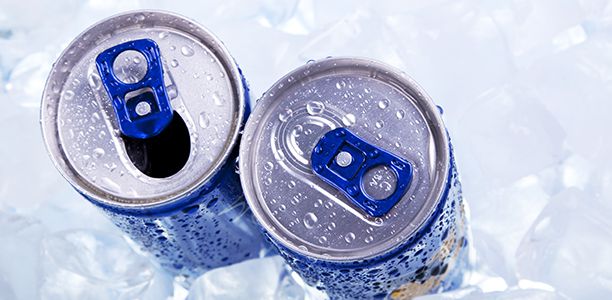International health experts are calling for a stronger regulatory stand on the use of energy drinks and curb the growing harm caused by their consumption.
The call comes following an international conference at Deakin University late last year that looked at the current evidence regarding the consumption, marketing and harms associated with the use of caffeinated energy drinks (EDs).
The research findings presented at the conference included EDs being associated with cardiac arrest and sudden death, heart palpitations, digestive tract problems and increased anxiety, even in children as young as 12 years; the consumption of EDs with alcohol linked to greater levels of harm and their use as a way to ‘sober up’ substantially increasing the likelihood of injuries.
It was the conclusion of those attending the conference that regulatory changes are needed in order to protect the health of those most vulnerable in the community, especially children.
“The increasing evidence of the harms associated with energy drinks can no longer be ignored,” said Deakin’s Associate Professor Peter Miller, convenor of the conference.
“It was startling to those at the conference that this apparently harmless substance was shown to be such a significant threat to adults and, more alarmingly to children.
1st International Energy Drinks Conference
Statement of Concern
On the 6th and 7th of November 2014, a group of independent international scientists, health professionals, youth workers, local council representatives and others met to discuss current evidence regarding the consumption, marketing and harms associated with the use of caffeinated Energy Drinks (EDs).
Key findings
Over the course of two days, key findings presented at the conference included:
- Energy Drinks have been reported in association with cardiac arrest and sudden death and should be used with caution, particularly in the young and people with cardiac problems.
- EDs are associated with heart palpitations, digestive tract problems, increased anxiety and visual disturbances, even in children as young as 12.
- Preliminary data from surveys of Australian and European children and young people suggests that the average age of first consumption of EDs is 10.5 years old.
- Underage drinkers report consuming premixed, off-the-shelf alcohol-energy drinks because of their familiar sweet taste.
- The visual similarity of premixed alcohol-ED packaging and soft drink packaging allows underage drinkers to disguise use from parents and teachers.
- Consumption of EDs combined with alcohol is associated with greater levels of alcohol consumption and subsequent harm, especially at higher levels and with groups of risk taking consumers.
- Preliminary evidence suggests that EDs are being used by young women with disordered eating as meal substitutes and/or appetite suppressants.
- The marketing and promotion of EDs to children is ubiquitous and almost never in clear public sight, focusing on new electronic media to circumvent parental and regulatory attention.
- Using EDs to ‘sober up’ is associated with a substantially increased likelihood of experiencing injury.
Policy change options
Key policy change options and recommendations discussed included:
LIMIT THE CAFFEINE LEVEL ALLOWABLE IN ENERGY DRINKS:
Limit caffeine level in the product. Currently, the United States lists caffeine as “generally recognized as safe” (GRAS) at 200 mg/L. Many energy drinks sold in the USA and in Australia exceed this level. In Australia, the maximum caffeine content allowed in energy drinks is much higher at 320mg/L; almost all popular brands are manufactured at this limit.
LIMIT ACCESS and AVAILABILITY TO YOUTH:
There is a lack of evidence showing these products are safe, and attendees recommend cautionary measures until product safety is demonstrated. Conference attendees, and the law in the USA, define children as individuals under the age of 18. In Australia, no definition exists for energy drinks policy. It is recommended that as a default measure, governments around the world should ban the sale of EDs to anyone under the age of 18 years old, as done in countries such as Denmark, Turkey, Norway, Uruguay, Iceland and Lithuania.
BAN PRE-MIXED ALCOHOL AND ENERGY DRINKS:
Following the lead of the USA, whose FDA took steps to send warning letters to the makers of pre-mixed caffeinated alcoholic beverages, other countries should ban the production and sale of all pre-mixed caffeinated alcoholic beverages.
PRODUCT LABELLING:
Strong regulation is needed on the labelling of products to ensure consumers and parents are aware of the health concerns associated with energy drinks.
MARKETING RESTRICTIONS:
There is a need for effective regulation of advertising and other forms of marketing – such as give-aways and cross-promotions – these strategies should be monitored and regulated.
Research gaps
The conference attendees identified a number of key topics for further research:
- Need for data on the safety of energy drinks containing caffeine in levels that exceed the current U.S. “safe” limit, especially for children younger than 18.
- The long-term health effects of ‘energy blend’ ancillary ingredients, especially in children.
- The pharmacological actions and interactions of “Other” ingredients such as guarana, taurine, and other ‘black box’ ingredients; (the so called ENERGY BLEND) with caffeine
- The mechanisms that link EDs to increased risky substance use (including tobacco use), including possible pharmacological interactions.
- The feasibility and acceptability of screening tools for ED consumption among children.
- The interrelationships between ED use, sleep, cognitive function and academic performance.
Improving clinical and professional practice
- Routine screening for ED use should be introduced in hospitals and adolescent/paediatric medicine
- Research-informed prevention strategies to delay the onset and level of use are needed
- Simple education might not be sufficient and can have unintended consequences
- Parent-focused interventions require development and evaluation
(Source: Deakin University)











